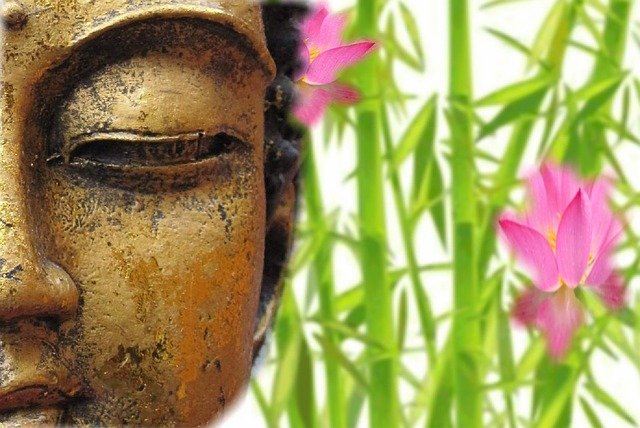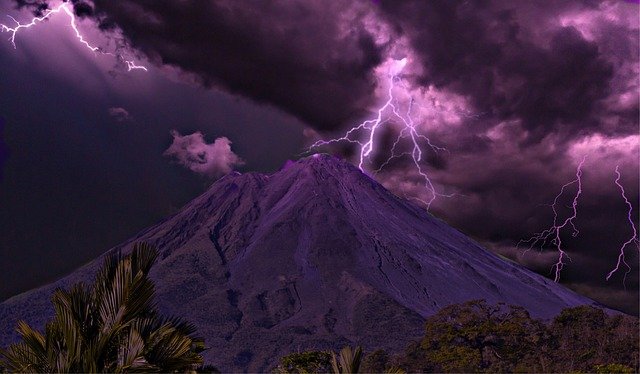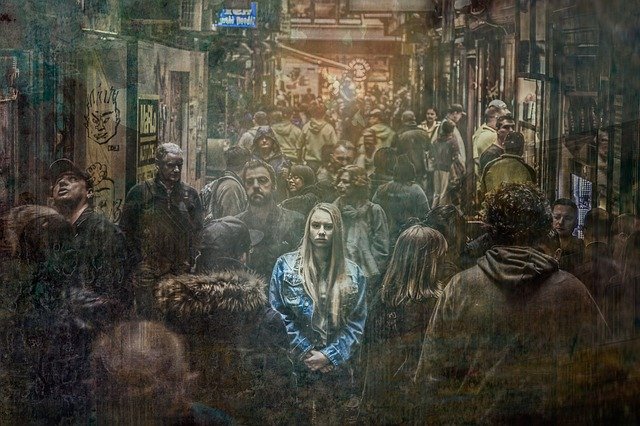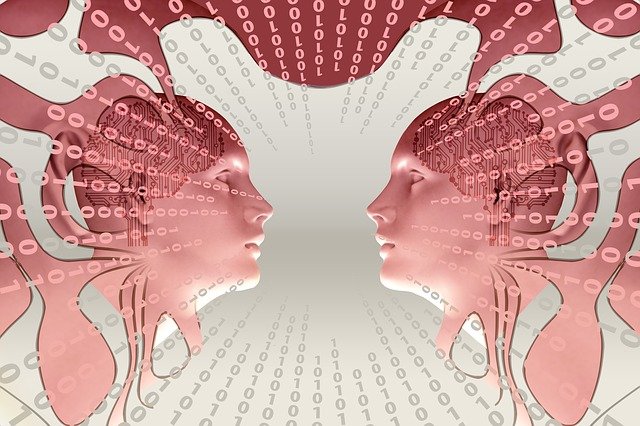
Why me? It’s a common theme people sometimes grapple with as they move through life. In Buddhism we learn to cultivate right views and learn that things that happen to us and even things that people do to us, even things we view as evil and wrong, are not personal. But, he smacked me in the face! That really was personal! Well, to the uninitiated it sure seems that way but we want to see clearly don’t we? The day to day regular situations that we encounter are ripe with juicy situations that can trigger our sense of being offended in some way which then in turn triggers other peoples’ sense of being offended and on and on. It’s a mess.
Beyond that, we also have the big stuff. The people we think are evil and do horrible things. Pedophiles, rapists, Republicans…LOL. Seriously, this is probably the biggest truth I have had to face to end my own suffering. I suffered for years as a survivor of horrific child abuse that caused me to be, at the age of 13, served up into the hands of another violent perpetrator that I escaped from when I was 20. Because of the unimaginable things my brothers and I endured we all developed complex trauma and post traumatic stress and two of my brothers did not survive. One of my brothers that survived is not doing well at all. Trauma is not a joke and it kills. People with complex trauma are highly susceptible to premature death from a variety of effects psychologically and physically. So, I am not in any way downplaying the effects of trauma in any way. Am I completely over it? I might be by the time I’m done writing this essay. What I am attempting to do is take us through a process of Buddhist logic to deconstruct situations to see things as they really are. Let’s dig in.

A Perfect Storm
Over the weekend I had the pleasure of spending time with some of the members of the Brooklyn Psychedelic Society for a kind of a formal rap session. We began talking about ways to ease our suffering and we gravitated towards Buddhist thought and touched on the distinctions between pain and suffering. Pain comes when we receive the initial punch in the face. But what we don’t understand is that we have the complete ability to not prolong that pain into suffering. It got me thinking about how logically we can understand this truth and apply it and the concept of a storm and with all it’s attributes, lightning, thunder, wind…it’s a complex system. So, this week I want to explain the way conditions come together to arise in any sort of event, like in a storm, and then how when we find ourselves in one of these events we have the ability to not make things worse for ourselves by adding stress and suffering on top of it by looking outside of ourselves for a way to make the suffering stop.
In terms of how the storm starts, that is the focus of today’s lesson, most of all for myself! Obviously, I am really hoping this leads you to the first of many a-ha moments as well. Let’s wake up together. So, seeing a storm coming at us we understand that the storm is not coming after us personally. We understand that there is an elaborate mechanism consisting of barometric pressure and all that other stuff, I am not a weather person so let’s look at an expert explanation:
Weather is made up of multiple parameters, including air temperature, atmospheric (barometric) pressure, humidity, precipitation, solar radiation and wind. Each of these factors can be measured to define typical weather patterns and to determine the quality of local atmospheric conditions. ~ www.fondriest.com
So, these are the elements of weather but what turns it into a storm?
A storm is any disturbed state of an environment or in an astronomical body's atmosphere especially affecting its surface, and strongly implying severe weather. It may be marked by significant disruptions to normal conditions such as strong wind, tornados, hail, thunder and lightning (a thunderstorm), heavy precipitation (snowstorm, rainstorm), heavy freezing rain (ice storm), strong winds (tropical cyclone, windstorm), or wind transporting some substance through the atmosphere as in a dust storm, blizzard, sandstorm, etc.
Storms have the potential to harm lives and property via storm surge, heavy rain or snow causing flooding or road impassibility, lightning, wildfires, and vertical wind shear.
Those are a lot of factors. So, when you apply this idea to a person or persons and situations coming at you can begin to see that there are a LOT of factors that came together over a long period of time that lead to the moment in time when the SHTF (shit hits the fan). Perhaps we can begin to understand that that person or persons has been dealing with multiple storms for a very long time and they are basically a walking storm within storms. When they strike, they are just acting out the elements that have come together in their universe and we just happened to be in their vicinity when they see us and they choose to strike. When lightning strikes we don’t always know that it’s coming but many times we can see a storm brewing. As we begin to see clearly we will be able to see all kinds of potential storms brewing that we choose to avoid. This doesn’t mean that we begin to live in avoidance. This means that we develop wisdom so that we know how to respond, when to leave and when to stay. This is called skillfulness and we will be getting all into that.

Suffering and Stress
If we get caught in a storm do we, say, a hurricane or a tornado, do we go out in the middle of it and shake our fist at the storm and demand it stop? Of course not, well, maybe some people do, but that would admittedly be a little nutty. As there are a number of factors coming together to create the storm we find ourselves in there are a number of factors inside us that come together to create our own personal storm in reaction to the storm outside of us. That is known as suffering and stress and in the language of the Buddha it is called dukkha. The first element in the creation of suffering and stress is ignorance - but ignorance of what? It always goes back to the basics – ignorance of the Four Noble Truths. Let’s review them again:
The Four Noble Truths
- the truth of suffering
- the truth of the cause of suffering
- the truth of the end of suffering
- the truth of the path that leads to the end of suffering.
More simply put that suffering exists and it has a cause. But that it also has an end and it has a solution to bring about its end. We all suffer because we don’t know how to stop creating storms, there is a way to stop suffering and the Noble Eightfold Path is the way. It is a complete teaching that shows how the human mind works and how to use it in the optimal way and that doing this will ultimately completely end our habit to create suffering – create storms. It’s a bit involved and takes time but doesn’t anything in life that is worthwhile? And, what is more important than exiting the cycle of suffering? I can’t think of anything more important.

Conclusion
I would love your feedback on the analogy of storms and if it sparked an a-ha in you about how a lightning strike is not personal – it comes out of a storm that has nothing to do with you. It is how you respond internally that determines whether or not you co-create a storm based on a false notion that something personal is going on. They are coming from a storm that was passed down to them more than likely for many generations. This intergenerational suffering is their personal karma that only they can resolve We don’t have to make things worse by taking their actions personally. . If you have read some of my previous posts on karma, karma means action. There is a way to deconstruct all of this so that we can see clearly that none of this is personal. I hope you stick with me so we can wake up together. I'll leave you with this little illustration of difference between pain and suffering from yogi and Buddhist teacher Phillip Moffitt:
I see my students’ lives also being changed by this insight. My students have always been some of my best teachers. Over the last couple of years, I’ve been working with a student who’s had a series of emotional and environmental challenges in his life. I see the way in which this understanding of the impersonal nature of life has radically transformed him. It’s taken two years of repeating this view to him over and over, but just this one understanding has changed how much actual physical suffering there is for him. As he has learned in his yoga not to take the body’s reaction personally, he’s discovered that there is no “me” or “my” in the center of his experience, just a series of chemical reactions because of causes and circumstances. As a result there is no longer the added chemical reaction of fear and aversion to the pain. He can relate more directly to the pain itself.
With this new view, he doesn’t have to spin into additional suffering. His body’s reactions are dramatically softened, and the change in the internal, emotional experience of his mind is like night to day.This is one of the central insights of the contemplative traditions:The difference between pain and that same pain multi- plied by resistance to the pain is enormous. Science supports this. It’s not a speculative philosophy. And, of course, the wonderful thing is that this all applies to our lives as they are right now, not at some future time “when I become a great yogi” or get to some future enlightened place.
What do you think?

@soulsistashakti is a musical artist and writer based in NYC as well as a practitioner of Buddhist teachings. You can check out my music on my FB artist page at https://www.facebook.com/soulsistashakti
Check out my blog for other essays on Buddhism and meditation
Recent posts
The Buddha Was Just a Guy Who Got Woke – The Parable of Two Arrows
Buddhism: Hope for Trauma Survivors and Healing Modalities
Buddhism: Learning How to Drop Aversion and Be in Grace
Awaken Your Creativity/Writing With Morning Pages and Buddhist Mindfulness Practices
My First 10 Day Buddhist Samatha-Vipassana Meditation Retreat in NYC
Images pixabay.com
Excellent post @ soulsistashakti! based on The Classic Yoga by Walter Gardini, Yoga advocates an alert conscience, which is why we work to get out of ignorance, and a realistic vision: to learn to face pain with sorrow, to be instructed by it, to take advantage of the lessons it can give us.
In reality it is a light that allows us to know and clarify the mystery of life. As Unamuno wrote: "it is our inevitable contact with reality" that is, with the finitude of the human being. Only those who freely accept pain as a teacher can, through it, grow, create and choose the most authentic values.
I consider myself a yogi, on the way and therefore I try to understand this type of questioning from this philosophy that I love and respect because it has allowed me to see life in another way, live more in the present and understand many things, such as pain, fear, etc. and has given me tools to cope with them.
@marceladiomede I love this you have shared here! I'm on the path not only because I want enlightenment but there are real world situations that need our attention and only wisdom will solve them. Denying our pain just by thinking positive is not on the path to wisdom. I am letting your words sink into me. I am also now curious to check out these sources you have mentioned. Thank you!
Dear @soulsistashakti, this is a very old book, the author was a professor from the The Salvador University in Buenos Aires, he was professor at the Oriental Studies Catedra in this University in Argentina. Here is very difficult to find it because the editorial are not printed it any more! but for me is a bible! sure you could find it in pdf mode but in spanish http://www.lecturasenpdf.com/post/yoga-clasico-34517.html
Check here in English ==> https://reishireview.cf/share/google-books-store-yoga-clasico-pdf-by-walter-gardini.html
Thank you!